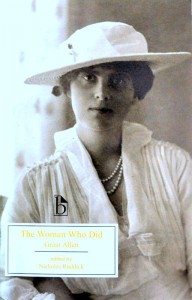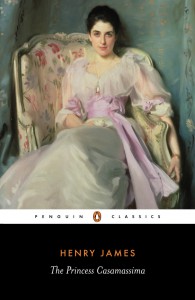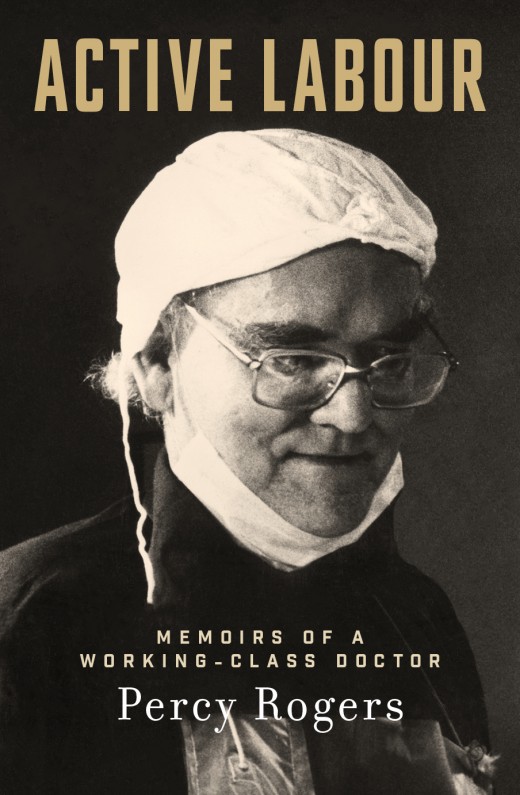It takes courage for writers to ‘go out on a limb’ in order to develop, and commit to, an individual writing style that satisfies readers. On 9 March 1895, H. G. Wells, English writer and commentator, wrote a review in the ‘Saturday Review’ of Grant Allen’s controversial novel, ‘The Woman Who Did’: “The whole book … is strenuous without strength, florid without beauty, subtly meant and coarsely done. Yet withal, though it falls so short in execution and art, there is something about it … that makes it readable. It warms one at times where better work may leave one cold. It may not merit praise, but it merits reading.” Although Wells was scathing of Allen’s melodramatic style, accusing him of writing “swiftly” and “hotly”, he had to admit that Allen’s writing “merits reading”.
 The quest for readability in fiction, and even memoirs, sometimes results in traditional rules of writing being broken, just like the female character, Herminia, broke the rules of Victorian patriarchal society with her rejection of marriage in the New Woman novel, ‘The Woman Who Did’. Well educated and articulate, Herminia was a feminist, ahead of her time, even for her own daughter. The belief that she had failed as a mother resulted in her tragic suicide. This extract focuses on the potent anguish of Herminia when her daughter rejects her:
The quest for readability in fiction, and even memoirs, sometimes results in traditional rules of writing being broken, just like the female character, Herminia, broke the rules of Victorian patriarchal society with her rejection of marriage in the New Woman novel, ‘The Woman Who Did’. Well educated and articulate, Herminia was a feminist, ahead of her time, even for her own daughter. The belief that she had failed as a mother resulted in her tragic suicide. This extract focuses on the potent anguish of Herminia when her daughter rejects her:
“Herminia rose and faced her. Her white lips grew livid. She had counted on every element of her martyrdom—save one; and this, the blackest and fiercest of them all, had never even occurred to her.”
Allen has created tension and drama through his choice of punctuation—the staccato narrative is compelling and chilling, enhancing its readability. But his word choice is limiting; for example, the visual potency of “Her white lips grew livid” would be enhanced if it was changed to: ‘Her white lips darkened to a greyish-blue’.
To compare, consider the exquisite and florid writing of Henry James, which is not for rapid narration of events, but for  evoking delicate and nuanced signposts. He is masterful in his handling of his characters’ inner lives. In ‘The Princess Casamassima’ (written nine years before ‘The Woman Who Did’), James sensitively teases out Hyacinth’s inner conflicts, which culminates in his suicide. The tragedy of young Hyacinth, so sympathetically explored by James, draws the reader into Hyacinth’s inhibitions over an extended period of time. Soak up the following passage, and consider its readability:
evoking delicate and nuanced signposts. He is masterful in his handling of his characters’ inner lives. In ‘The Princess Casamassima’ (written nine years before ‘The Woman Who Did’), James sensitively teases out Hyacinth’s inner conflicts, which culminates in his suicide. The tragedy of young Hyacinth, so sympathetically explored by James, draws the reader into Hyacinth’s inhibitions over an extended period of time. Soak up the following passage, and consider its readability:
“It was impossible that our young man should not feel, at the end of ten minutes, that he had charmed the Princess into the deepest, most genuine attention; she was listening to him as she had never listened before. He enjoyed having that effect on her, and his sense of tenuity of the thread by which his future hung, renewed by his hearing himself talk about it, made him reflect that at present anything in the line of enjoyment was so much gained. The reader may judge whether he had passed through a phase of excitement after finding himself on his new footing of utility in the world; but that had finally spent itself, through a hundred forms of restlessness, of vain conjecture—through an exaltation which alternated with despair and which, equally with the despair, he concealed more successfully than he supposed.”(Chapter 24)
Not only is James so confident a writer in addressing the reader directly at times (“our young man”), but he uses a double negative in the opening line—a no-no when it comes to grammar rules. But in this instance the double negative prevents the reader from thinking that Hyacinth is conceited; and so he can be forgiven for wallowing in Christina’s attention. If you think about James’ long sentences, punctuated with appropriate pauses, they are subtly controlling his readers’ thoughts about Hyacinth. There is no denying it: Henry James’ writing is supremely readable. The road that leads to the finale for Hyacinth may be long and winding (some may say long-winded), but there is control, and his ‘fleshy’ characters are deeply engaging. I have just broken the rule of using too many adverbs!
The most difficult task for an editor is to identify and respect the style of a writer and, in doing so, overlook the fact that grammar rules are sometimes broken to maintain a desired mood or tone that drives the narrative. Some editors read with their eyes only, and not with all of their senses. The most important role of an editor is to ensure that the writing is structured sensibly with a mesmerising flow, shows respect for grammar rules, but more importantly, guarantees readability.





